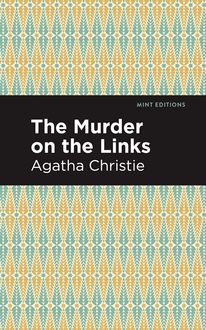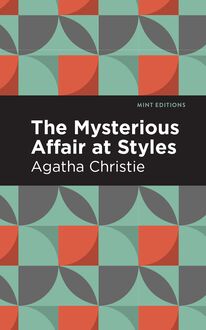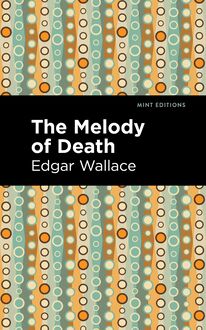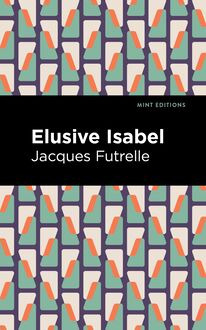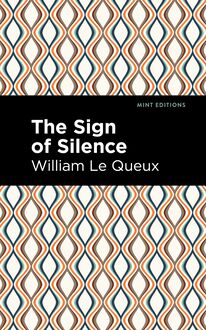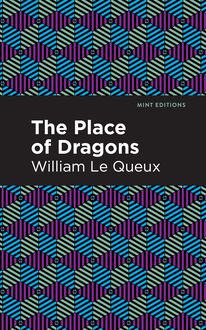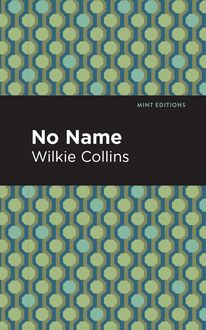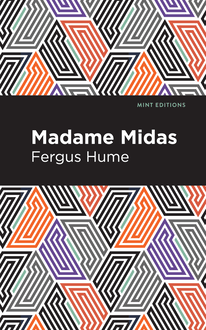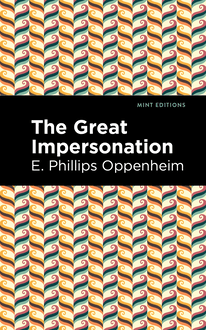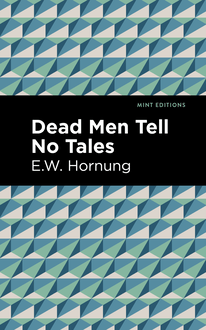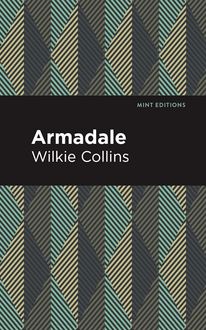-
 Univers
Univers
-
 Ebooks
Ebooks
-
 Livres audio
Livres audio
-
 Presse
Presse
-
 Podcasts
Podcasts
-
 BD
BD
-
 Documents
Documents
-
- Cours
- Révisions
- Ressources pédagogiques
- Sciences de l’éducation
- Manuels scolaires
- Langues
- Travaux de classe
- Annales de BEP
- Etudes supérieures
- Maternelle et primaire
- Fiches de lecture
- Orientation scolaire
- Méthodologie
- Corrigés de devoir
- Annales d’examens et concours
- Annales du bac
- Annales du brevet
- Rapports de stage
La lecture à portée de main
Vous pourrez modifier la taille du texte de cet ouvrage
Découvre YouScribe en t'inscrivant gratuitement
Je m'inscrisDécouvre YouScribe en t'inscrivant gratuitement
Je m'inscrisEn savoir plus
Vous pourrez modifier la taille du texte de cet ouvrage
En savoir plus

Description
Miss Mephistopheles (1890) is a mystery novel by Fergus Hume. Although not as successful as The Mystery of a Hansom Cab (1886), an immediate bestseller for Hume, Miss Mephistopheles is a gripping novel with forbidden romance and a tightly wound mystery worthy of the best of Victorian fiction. A sequel to Madame Midas (1888), a story of fortune and loss set in the shadow of Australia’s nineteenth century gold rush, Miss Mephistopheles examines the solidarity between women abused and abandoned by men.
Having lost her family fortune to a deceitful husband, Mrs. Villiers flees to Ballarat, where she turns her attention to managing her father’s mine. Known to the local people as Madame Midas, she maintains a hard exterior in order not only to hide the truth of her past, but to guard herself from the cruelty of men. There, she rescues a young girl named Kitty Marchurst, a preacher’s daughter misled by a wicked ex-convict. Raising her daughter Meg, Marchurst becomes a star in the Melbourne burlesque scene, acquiring wealth and fame beyond her wildest dreams. When her beloved diamonds are stolen, however, her world—and the city itself—threaten to come crashing down. Enmeshed in this mystery are an American insurance agent and Mrs. Villiers’ estranged husband, shadowy figures who move in and out of respectable society looking for vulnerable marks. Miss Mephistopheles is a tale of violence and greed set in a country built on wealth gathered too quickly to last.
With a beautifully designed cover and professionally typeset manuscript, this edition of Fergus Hume’s Miss Mephistopheles is a classic of Australian mystery and detective fiction reimagined for modern readers.
Sujets
Informations
| Publié par | Mint Editions |
| Date de parution | 09 mars 2021 |
| Nombre de lectures | 0 |
| EAN13 | 9781513278810 |
| Langue | English |
| Poids de l'ouvrage | 1 Mo |
Informations légales : prix de location à la page 0,0500€. Cette information est donnée uniquement à titre indicatif conformément à la législation en vigueur.
Extrait
Miss Mephistopheles
A Novel
Fergus Hume
Miss Mephistopheles: A Novel was first published in 1880.
This edition published by Mint Editions 2020.
ISBN 9781513278353 | E-ISBN 9781513278810
Published by Mint Editions®
minteditionbooks.com
Publishing Director: Jennifer Newens
Design & Production: Rachel Lopez Metzger
Project Manager: Micaela Clark
Typesetting: Westchester Publishing Services
C ONTENTS I. F ACES IN THE F IRE II. K EITH MEETS WITH AN A DVENTURE III. P RINCE C ARNIVAL IV. L AZARUS V. A W OMAN ’ S A PPEAL VI. T HE A NNOYANCE OF H IRAM J. F ENTON VII. M IRTH AND L AUGHTER VIII. A M YSTERIOUS A FFAIR IX. A N U NKNOWN B ENEFACTOR X. N ABALL MAKES A D ISCOVERY XI. W HAT N ABALL OVERHEARD XII. N ABALL TELLS A S TORY XIII. T HE G OSSIP OF C LUBS XIV. A S TRUGGLE FOR F AME XV. T HE R USSELL S TREET C RIME XVI. T HE I NQUEST XVII. A C OUNCIL OF T HREE XVIII. C IRCUMSTANTIAL E VIDENCE XIX. A L OVERS ’ M EETING XX. T HE R IVALS XXI. A F IRST N IGHT AT THE B ON -B ON XXII. E UGÉNIE V . N ABALL XXIII. T HE C YPHER XXIV. W HAT K ITTY KNEW XXV. T HE E VIDENCE OF A B ANK -N OTE XXVI. O N THE T RACK XXVII. M EG PROVES U SEFUL XXVIII. M ALTON MAKES A D ISCOVERY XXIX. L IGHT AT L AST XXX. E XIT K ITTY M ARCHURST
I
F ACES IN THE F IRE
A wet Sunday—dreary, dismal, and infinitely sloppy. Even the bells ringing the people into evening service seemed to feel the depressing influence of the weather, and their brazen voices sounded hoarse and grumbling, as if they rang under protest. Cold, too!—not a brisk sharp frost—for here in Melbourne frost and snow are unknown; but a persevering, insinuating, gnawing cold, just disagreeable enough to make one shiver and shake with anxiety to get home to a bright fire and dry clothes. Overhead a leaden-coloured sky, with great masses of black clouds, from out whose sombre bosoms poured the steady rain, splashing noisily on the shining roofs, and swelling the gutters in the streets to miniature torrents.
And then the wind,—a gusty, chilly wind,—that came along unexpectedly, and drove the unwilling rain against the umbrellas of struggling pedestrians, or else took a mean advantage of its power, and turned their umbrellas inside out, with a shrill whistle of triumph. The steady light streamed out from the painted church windows, and the dull, blurred glare of the street lamps was reflected in the wet pavements. Ugh! a night not fit for a dog to be out in, and yet there were a good many people hurrying along to the church, in answer to the clamorous voices of the bells.
Some folk, however—wise in their generation—preferred staying at home to sitting in church, with damp boots and a general sense of stickiness about their clothes, and though possibly their souls suffered from such an omission, their bodies were certainly more comfortable. Among these godless people, who thus preferred comfort to religion, were two young men occupying a room on a first floor, the windows of which looked across to the church, now full of damp and steaming worshippers.
A room in a boarding-house—especially one where boarders only pay twenty-five shillings a week—is not generally a very luxurious apartment, and this special room was certainly no exception to the rule. It was square, with a fairly lofty ceiling, and the walls were covered with a dull red paper, which, being mellowed by time, had assumed a somewhat rusty hue.
It was rapidly growing dark outside, and there was no light in the room, save that which came from a roaring coal fire blazing brightly up the chimney, and illuminating the apartment in a curiously fantastic manner. It sent out red shafts of light into dark corners, as if to find out what was hidden there, and then being disappointed, would sink back into a dull, sulky glow, only to fall into a chaotic mass, and blaze merrily up once more.
The apartment wherein the fire played these elfish tricks was furnished comfortably, but the furniture had a somewhat dingy look. The carpet was threadbare, except under the table, where there could be traced some vestiges of its original pattern. A cottage piano was pushed into a corner slanting ways, and beside it was a great untidy pile of music. At one end of the room, a desk covered with papers, and immediately above it a shelf containing a small array of well-worn books. Near the desk stood an aggravatingly bright sideboard, whereon were some glasses, a jug of water, and a half-empty bottle of whisky. Four or five lounging chairs of wicker-work were scattered about, covered with rugs of wallaby fur, whilst the walls and mantelpiece were almost covered with photographs, mostly of women, but here and there a male face, showing the well-known features of Beethoven, Chopin, and other famous musicians.
This somewhat incongruous apartment was a private sitting-room in an East Melbourne boarding-house, and was at present in the occupation of Ezra Lazarus, journalist. Ezra Lazarus himself was seated at the piano playing snatches of music, while on the hearth-rug, smoking a pipe, lay a man propped up on his elbow, with his head resting on his hand, staring into the burning coals, and listening to his friend playing.
Ezra Lazarus was a young man of medium height, with a slender figure, a pale face, rather dreamy, dark eyes, and black hair and beard carefully trimmed. He dressed neatly, and, in contrast to most of his race, wore no jewellery. Why he had become a journalist no one knew,—himself least of all,—as his tastes did not lie in the direction of newspaper work, for having all the Hebraic love of music, he was an accomplished pianist. As for the rest—staid in his demeanour, soft-spoken in his language, and much given to solitary wanderings. Yet he was no misanthrope, and those who knew him intimately found him a most charming companion, full of quaint ideas and bookish lore, but he was essentially a man of ideality, and shrank from contact with the work-a-day world. For such a nature as this a journalistic sphere was most unsuitable, and he felt it to be so, but having drifted into such a position, he lacked the energy to extricate himself from his uncongenial employment, and accepted his fate with oriental apathy, recompensing himself in some measure by giving every spare moment to the study of music.
The man lying before the fire was the direct opposite of Ezra, both in appearance and temperament. A tall, sinewy-figured young fellow of six-and-twenty, with restless keen grey eyes under strongly-marked eyebrows, and a sensitive mouth, almost hidden by a small fair moustache. His nose was thin and straight, with delicately-cut nostrils, and his head was well set on his broad shoulders, albeit he had a trick of throwing it back which gave him a somewhat haughty carriage. He had a fair complexion, with that reddish-brown hue which comes from constantly living in the open air, and altogether looked like a man addicted to sport rather than to study.
This was Keith Stewart, who, having passed most of his life in Gippsland, and in wandering about Australia generally, had a year previously come down to Melbourne with the laudable intention of devoting himself to literature. That he was poor might be surmised from his shabby, well-brushed clothes, and his face constantly wore that expression of watchfulness habitual to those who have to fight the world in their youth and be on their guard against everyone.
That two such dissimilar natures as these could find any reciprocity appears strange, but curiously enough some undercurrent of sympathy had drawn them together from the first time they met. Jew and Gentile, musician and student, different nationalities, different trains of thought, yet the mere fact that they could both live in an ideal world of their own creation, heedless of the restless life which seethed around, seemed to form a bond of concord between them, and their mutual isolation drew them almost imperceptibly together.
Keith had only been boarding in the house a week, consequently Ezra knew nothing about his friend’s life, beyond the fact that he was poor and ambitious. As Stewart never volunteered any information about himself, Ezra, with the delicacy of a sensitive nature, shrank from forcing himself on his confidence. The inexhaustible subjects of books and music, a walk by the banks of the Yarra, or an occasional visit to the theatre, had been, so far, the limit of their social companionship. Their inner selves were still unknown to each other. To all, however, there comes a moment when the desire to unburden the mind to a sympathetic nature is strong, and it was in such a moment that Ezra Lazarus first learned the past life of Stewart.
On this dreary Sunday night Ezra let his fingers wander over the piano, vaguely following his thoughts, and the result was a queer mingling of melodies—now a bizarre polonaise of Chopin, with its fantastic blending of patriotic joy and despairing pain, then a rush of stormy chords, preluding a Spanish dance, instinct with the amorous languor and fierce passion of the south. Outside, the shrill wind could be heard sweeping past, a sheet of rain would lash wildly against the windows, and at intervals the musical thunder of the organ sounded from the adjacent church.
Keith smoked away steadily and listened drowsily to the pleasant mingling of sounds, until Ezra began to play the Traviata music, with its feverish brilliancy and undercurrent of sadness. Then he suddenly started, clenched his hand, and taking his pipe from his mouth, heaved an impatient sigh, upon hearing which, Lazarus stopped playing, and turned slowly round.
“A link of memory?” he said, in his soft voice, referring to the music.
Stewart replaced his pipe, blew a thick wreath of smoke, and sighed again.
“Yes,” he replied, after a pause; “it recalls to me—a woman.”
Ezra laughed half sadly, half mockingly.
“Always the Eternal feminine of George Sand.”
Keith sat up cross-legged in front of the fi
-
 Univers
Univers
-
 Ebooks
Ebooks
-
 Livres audio
Livres audio
-
 Presse
Presse
-
 Podcasts
Podcasts
-
 BD
BD
-
 Documents
Documents
-
Jeunesse
-
Littérature
-
Ressources professionnelles
-
Santé et bien-être
-
Savoirs
-
Education
-
Loisirs et hobbies
-
Art, musique et cinéma
-
Actualité et débat de société
-
Jeunesse
-
Littérature
-
Ressources professionnelles
-
Santé et bien-être
-
Savoirs
-
Education
-
Loisirs et hobbies
-
Art, musique et cinéma
-
Actualité et débat de société
-
Actualités
-
Lifestyle
-
Presse jeunesse
-
Presse professionnelle
-
Pratique
-
Presse sportive
-
Presse internationale
-
Culture & Médias
-
Action et Aventures
-
Science-fiction et Fantasy
-
Société
-
Jeunesse
-
Littérature
-
Ressources professionnelles
-
Santé et bien-être
-
Savoirs
-
Education
-
Loisirs et hobbies
-
Art, musique et cinéma
-
Actualité et débat de société
- Cours
- Révisions
- Ressources pédagogiques
- Sciences de l’éducation
- Manuels scolaires
- Langues
- Travaux de classe
- Annales de BEP
- Etudes supérieures
- Maternelle et primaire
- Fiches de lecture
- Orientation scolaire
- Méthodologie
- Corrigés de devoir
- Annales d’examens et concours
- Annales du bac
- Annales du brevet
- Rapports de stage
